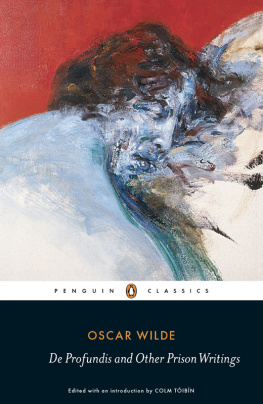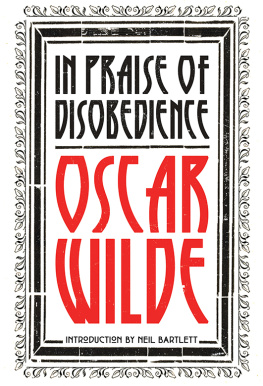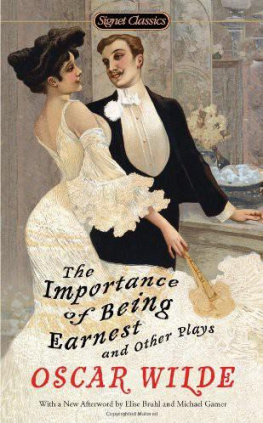
Oscar Wilde

DOVER PUBLICATIONS, INC.
Mineola, New York
DOVER THRIFT EDITIONS
G ENERAL E DITOR : M ARY CAROLYN WALDREP
E DITOR OF T HIS V OLUME : J ANET B. K OPITO
Copyright
Copyright 2015 by Dover Publications, Inc.
All rights reserved.
Bibliographical Note
Oscar Wilde: The Dover Reader, first published by Dover Publications, Inc., in 2015, is a new compilation of fiction, plays, and essays by Oscar Wilde reprinted from standard editions.
Library of Congress Cataloging-in-Publication Data
Wilde, Oscar, 1854-1900.
[Works. Selections. 2015]
Oscar Wilde : the Dover reader / Oscar Wilde. p. cm. (Dover thrift editions)
eISBN-13: 978-0-486-80191-9
I. Title.
PR5811 2015
828'.809dc23
2014033863
Manufactured in the United States by Courier Corporation
79122X01 2015
www.doverpublications.com
Note
CONTROVERSIAL AND ICONOCLASTIC, Oscar Wildes official attitude toward literature and art can be summed up in a quotation from his novel The Picture of Dorian Gray: There is no such thing as a moral or an immoral book. Books are well written or badly written. Taunting the staid Victorian public with his long hair and penchant for sunflowers and peacock feathers and the provocative pronouncements in his writings, Wilde nevertheless offers much food for thought in his vast examination of the arts, culture, and human nature.
Oscar Fingal OFlahertie Wills Wilde, the author of plays, poems, and essays, was born in Dublin, Ireland, in 1854. As a youth, Wilde learned French and German while being schooled at home; he later attended Trinity College to study classical literature and went on to become a leading figure of Aestheticism (a latenineteenth-century movement, along with Decadence, that embraced artifice and art for arts sake while rejecting common bourgeois moral standards and behavior). Hoping to marry his childhood sweetheart, Florence Balcombe, Wilde was disappointed by her decision to become, instead, the wife of Bram Stoker, the author of the influential Gothic horror novel Dracula.
In the early 1880s, Wilde lived in London and Paris and lectured throughout the United States. When he was twenty-seven, a collection of his verse, Poems, was published, selling out its first printing. While lecturing in Dublin in 1884, Wilde was reacquainted with Constance Lloyd, whom he had met several years earlier, and the two married later that year. They had two sons, Cyril and Vyvyan. The marriage was not to endure, however, and Wildes personal life fell to tatters when he became involved with Robert Ross, an important figure in Londons cultural scene. Great Britains laws regarding sexuality at that time were highly restrictive, and Wildes subsequent relationship with Lord Alfred Douglas ended up in a court case when Wilde sued Douglass father, the Marquess of Queensberry, for libeling him publicly. The trial ended in a hung jury, but a second trial ended in a conviction, and Wilde was sentenced to two years of hard labor. The context for Wildes behavior can be suggested by another Dorian Gray quotation: The only way to get rid of a temptation is to yield to it. Resist it, and your soul grows sick with longing for the things it has forbidden itself. Venturing into forbidden relationships and eventually punished by the legal system, Wilde became a broken man who eventually succumbed to meningitis in November 1900.
Oscar Wilde: The Dover Reader presents a broad selection of the authors fiction, nonfiction, and plays. Leading off is Wildes sole novel, The Picture of Dorian Gray, a work that explores the perils of the pursuit of pleasure without moral constraints. First serialized in 1890 in Lippincotts Monthly Magazine (in a censored version), the work was revised by the author and published in book form in 1891. In a marked departure from Dorian Gray, Wilde published, in 1888 and 1891, two collections of charming, wry, and instructive stories for children, The Happy Prince and Other Tales and A House of Pomegranates. Probably best known for his plays, Wilde reached a level of wit and irony in his comedies of manners An Ideal Husband (1895) and his masterwork, The Importance of Being Earnest (1895), that sets the standard for social critique and a glimpse into the darker side of human nature. The Decay of Lying: An Observation (1891), constructed as a dialogue, is essentially a collection of pronouncements and aphorisms about the relationship of art to life and nature, and vice versa. Incorporating typical Wildean wit, the piece puts forth the notion that Life imitates Art far more than Art imitates Life, with entertaining examples and no lack of outrageous statements. Finally, in a sober departure from the authors other writings, Wildes lengthy letter De Profundis [from the depths] to Bosie (Lord Alfred Douglas, his lover), is a stirring exercise in selfexamination as well as a minutely detailed account of the events that had played a part in Wildes downfall. In attempting to stoically accept his fate and also forgive those who wronged him, Wilde also casts light on the ills of a repressive society and the true meaning of friendship.
Contents
Oscar Wilde
FICTION
THE PICTURE OF DORIAN GRAY
THE PREFACE
The artist is the creator of beautiful things.
To reveal art and conceal the artist is arts aim.
The critic is he who can translate into another manner or a new material his impression of beautiful things.
The highest as the lowest form of criticism is a mode of autobiography.
Those who find ugly meanings in beautiful things are corrupt without being charming. This is a fault.
Those who find beautiful meanings in beautiful things are the cultivated. For these there is hope.
They are the elect to whom beautiful things mean only Beauty.
There is no such thing as a moral or an immoral book. Books are well written, or badly written. That is all.
The nineteenth century dislike of Realism is the rage of Caliban seeing his own face in a glass.
The nineteenth century dislike of Romanticism is the rage of Caliban not seeing his own face in a glass.
The moral life of man forms part of the subject-matter of the artist, but the morality of art consists in the perfect use of an imperfect medium.
No artist desires to prove anything. Even things that are true can be proved.
No artist has ethical sympathies. An ethical sympathy in an artist is an unpardonable mannerism of style.
No artist is ever morbid. The artist can express everything.
Thought and language are to the artist instruments of an art. Vice and virtue are to the artist materials for an art.
From the point of view of form, the type of all the arts is the art of the musician. From the point of view of feeling, the actors craft is the type.
All art is at once surface and symbol.
Those who go beneath the surface do so at their peril. Those who read the symbol do so at their peril.
It is the spectator, and not life, that art really mirrors.


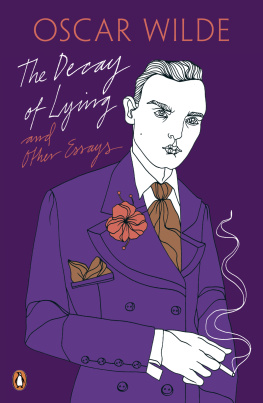
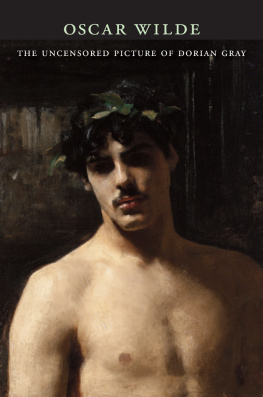
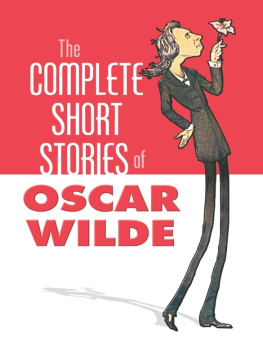
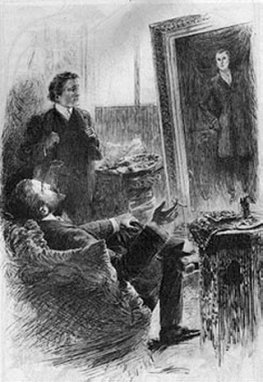

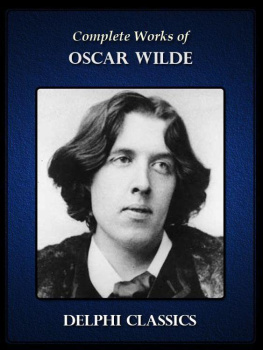
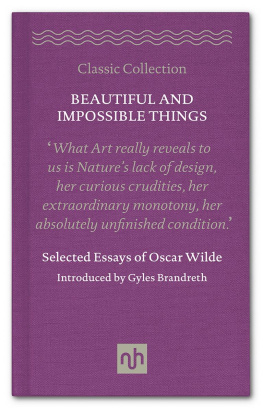
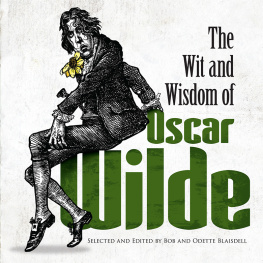
![Wilde Oscar - The secret life of Oscar Wilde: [an intimate biography]](/uploads/posts/book/228457/thumbs/wilde-oscar-the-secret-life-of-oscar-wilde-an.jpg)
